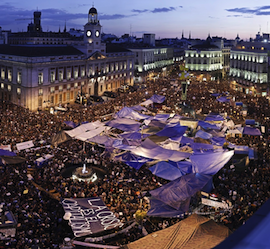In today’s world, the recurrent concept of the commons elaborates on the idea that the production of wealth and social life are heavily dependent on communication, cooperation, affects, and collective creativity. The commons would be, then, those milieu of shared resources, that are generated by the participation of the many and multiple, which constitute, some would say, the essential productive fabric of the 21st Century metropolis. And then, if we make this connection between commons and production, we have to think of political economy: power, rents, and conflict.
Commons can be defined by being shared by all, without becoming private for any individual self or institution. Commons include natural resources, common lands, urban public spaces, creative works, and knowledge that is exempt from copyright laws. In Athens, Istanbul and Rio de Janeiro, like in many global cities, the discussions around commons have been relevant especially with the increasing pressure of privatization and control of the governments over the shared assets of the community.
The questions, then, would be: may the commons provide us with alternative concepts and tactics to the dominant power, for a more democratic, tolerant, and heterogeneous society, which allows more participation and collectivity? Can we open up the different definitions of the commons, and are there different ways of understanding and discussing the commons through various practices? Due to our tradition of the private and the public, of property and individualism, the commons are still hard to see for our late 20th Century eyes.
We propose, therefore, a search for the commons, a search that will takes the form of a mapping process. We understand mapping, as proposed by Deleuze and Guattari, and as artists and social activists we have been using it during the last decade as a performance that can become a reflection, a work of art, a social action.
Can the commons be mapped? Which is the commonwealth of the contemporary metropolis and how can it be located? How are the commons being protected from enclosure by totalitarian neoliberalism’s public-private enterprises? Which new practices of commoning are emerging in the cycle of struggles that began in 2010-11? What are the advantages and the risks of such a cartography in times of crisis and rebellions?
